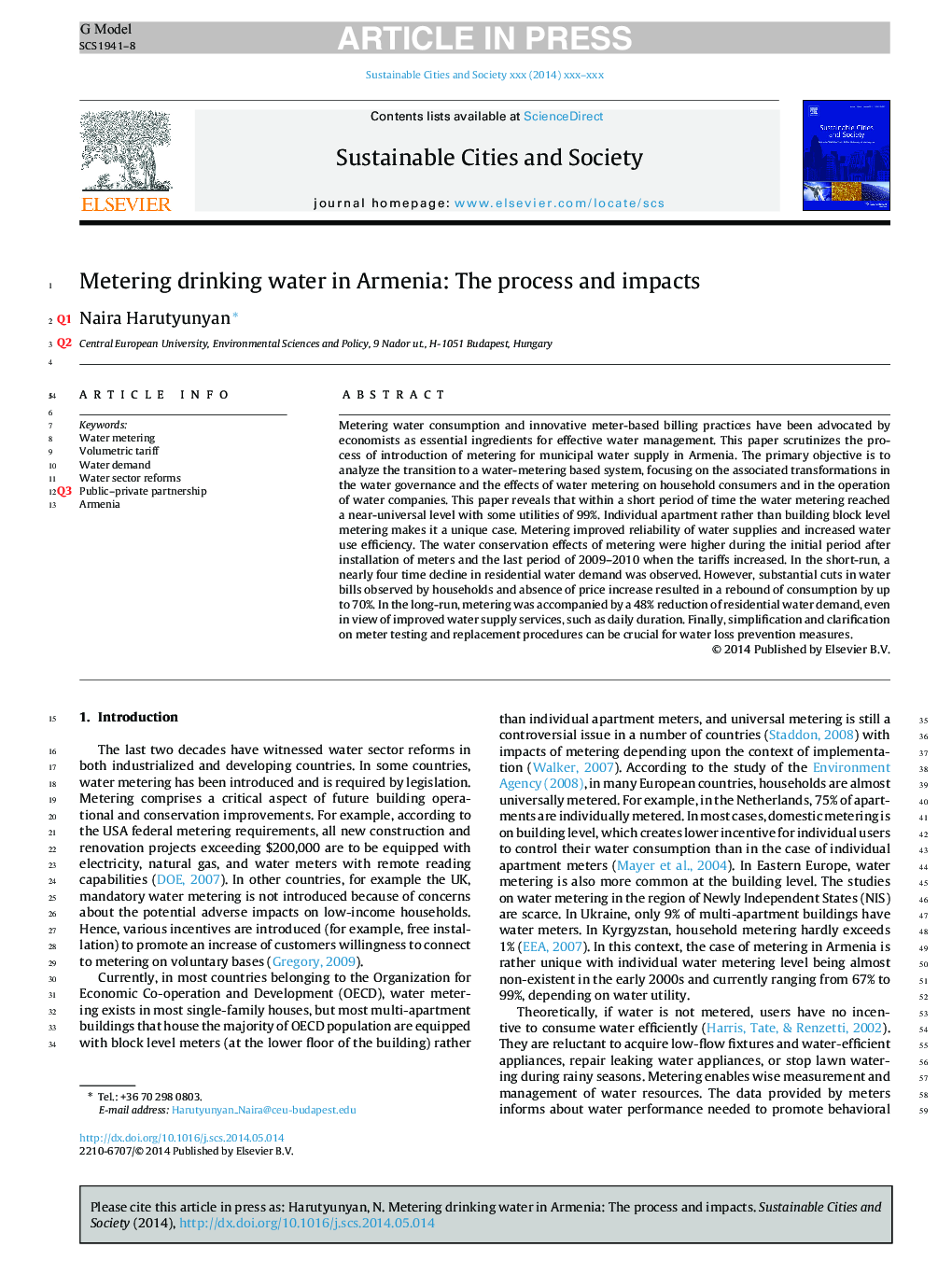| Article ID | Journal | Published Year | Pages | File Type |
|---|---|---|---|---|
| 6776444 | Sustainable Cities and Society | 2015 | 8 Pages |
Abstract
Metering water consumption and innovative meter-based billing practices have been advocated by economists as essential ingredients for effective water management. This paper scrutinizes the process of introduction of metering for municipal water supply in Armenia. The primary objective is to analyze the transition to a water-metering based system, focusing on the associated transformations in the water governance and the effects of water metering on household consumers and on the operation of water companies. This paper reveals that within a short period of time the water metering reached a near-universal level with some utilities of 99%. Individual apartment rather than building block level metering makes it a unique case. Metering improved reliability of water supplies and increased water use efficiency. The water conservation effects of metering were higher during the initial period after installation of meters and the last period of 2009-2010 when the tariffs increased. In the short-run, a nearly four time decline in residential water demand was observed. However, substantial cuts in water bills observed by households and absence of price increase resulted in a rebound of consumption by up to 70%. In the long-run, metering was accompanied by a 48% reduction of residential water demand, even in view of improved water supply services, such as daily duration. Finally, simplification and clarification on meter testing and replacement procedures can be crucial for water loss prevention measures.
Keywords
Related Topics
Physical Sciences and Engineering
Energy
Renewable Energy, Sustainability and the Environment
Authors
Naira Harutyunyan,
